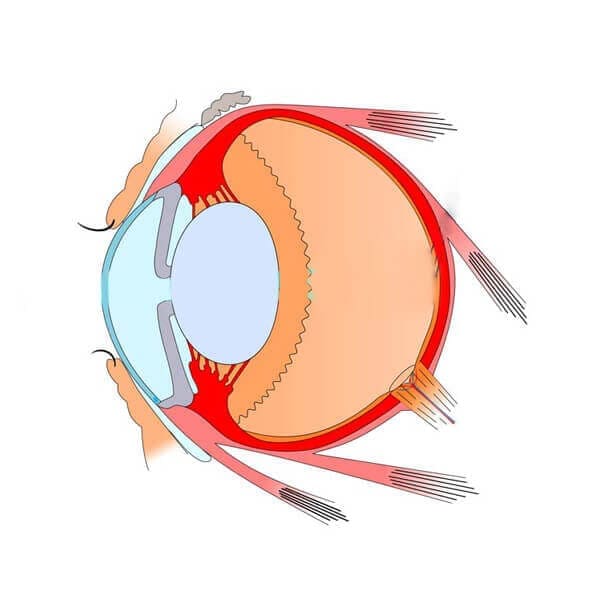


Age related macular degeneration is the leading cause of blindness in those over the age of 65 years and accounts one-third of cases of untreatable vision loss. This is a painless, irreversible, degenerative eye condition of the macula. With age, sometimes there is hardening of the arteries that nourish the retina. This deprives the sensitive retinal tissue of oxygen and nutrients that it needs to function and thrive. This leads to deterioration of central vision.
It is a multifactorial disease mostly due to:
Dry ARMD is generally a silent slowly progressive one.
Wet ARMD is associated with vision problems and distortion. Diagnosing this condition in time is the key to prevent any damage or scarring of the macula as the disease progresses.
A combination of drugs and laser therapy, a verteporfin photosensitive compound that localizes to the target tissue is injected into a peripheral vein and excited with a laser light of a specific wavelength. Activated verteporfin forms free radicals which coagulate the leaky subretinal vessel responsible for cellular injury. Patients receiving PDT should be advised to avoid sun exposure to the sun and other sources of bright light.
Since the angiogenic role of vascular endothelial growth factor (VGEF) in neovascularization in conditions like wet ARMD, new treatment modalities like anti-VGEF injections are the standard line of treatment.
Injections that are available are:
VissionTip : Cover one eye at a time, look at the center dot and note the line if they look straight, wavy or fuzzy. Contact your doctor if you see any irregularities or notice any changes.

Though there is no treatment for dry macular degeneration, intraocular injections are the only treatment for wet macular degeneration, such as Eylea, Lucentis and Avastin. If you have already lost your vision, this could restore some of that vision using low-vision aids. Other options include anti-angiogenic drugs, laser therapy and photodynamic laser therapy. As per the treatment chosen, the doctor administers medical injections, high-energy laser light and light-sensitive medications to prevent blood vessels from forming.
To prevent macular degeneration, consume a diet rich in
antioxidants, such as vegetables and fruits high in zeaxanthin and lutein. Examples
include collard greens, papaya, kiwi, green beans, sweet potatoes, squash, green bell
peppers, spinach, kale, oranges, broccoli, peaches, mangoes, lima beans and red
grapes. In addition, you should also consume peaches, apricots, orange bell
peppers, honeydew melon and yellow corn.
Other prevention methods include eye examinations, protecting the eyes from
ultraviolet rays, not smoking and taking vitamin supplements. You should also
manage other health conditions such as high blood pressure and cardiovascular
disease, maintain a healthy weight and include nuts and fish in your diet as
they contain omega-3 fatty acids.
Though nobody knows the causes behind dry macular
degeneration, its chances could be increased by environmental and hereditary
factors such as diet, obesity and smoking. Being a progressive disease, dry
macular degeneration affects the macula, which regulates clear vision in the
direct line of sight.
As we age, the macular tissue thins and lose cells that maintain sight. Risk
factors include the age above sixty, genetics, family history, smoking, race,
cardiovascular disease, obesity and high cholesterol. Caucasians, women, those
who do not consume vegetables and fruits with light-coloured eyes and skin are
at higher risk.
Macular degeneration occurs at all ages, starting from birth, childhood, early adulthood and middle age. For example, people with severe myopia are at risk of macular degeneration due to the unusual elongation of the eyeball, which causes bleeding and tears in the retina and macula. However, the chances exponentially increase after the age of sixty.